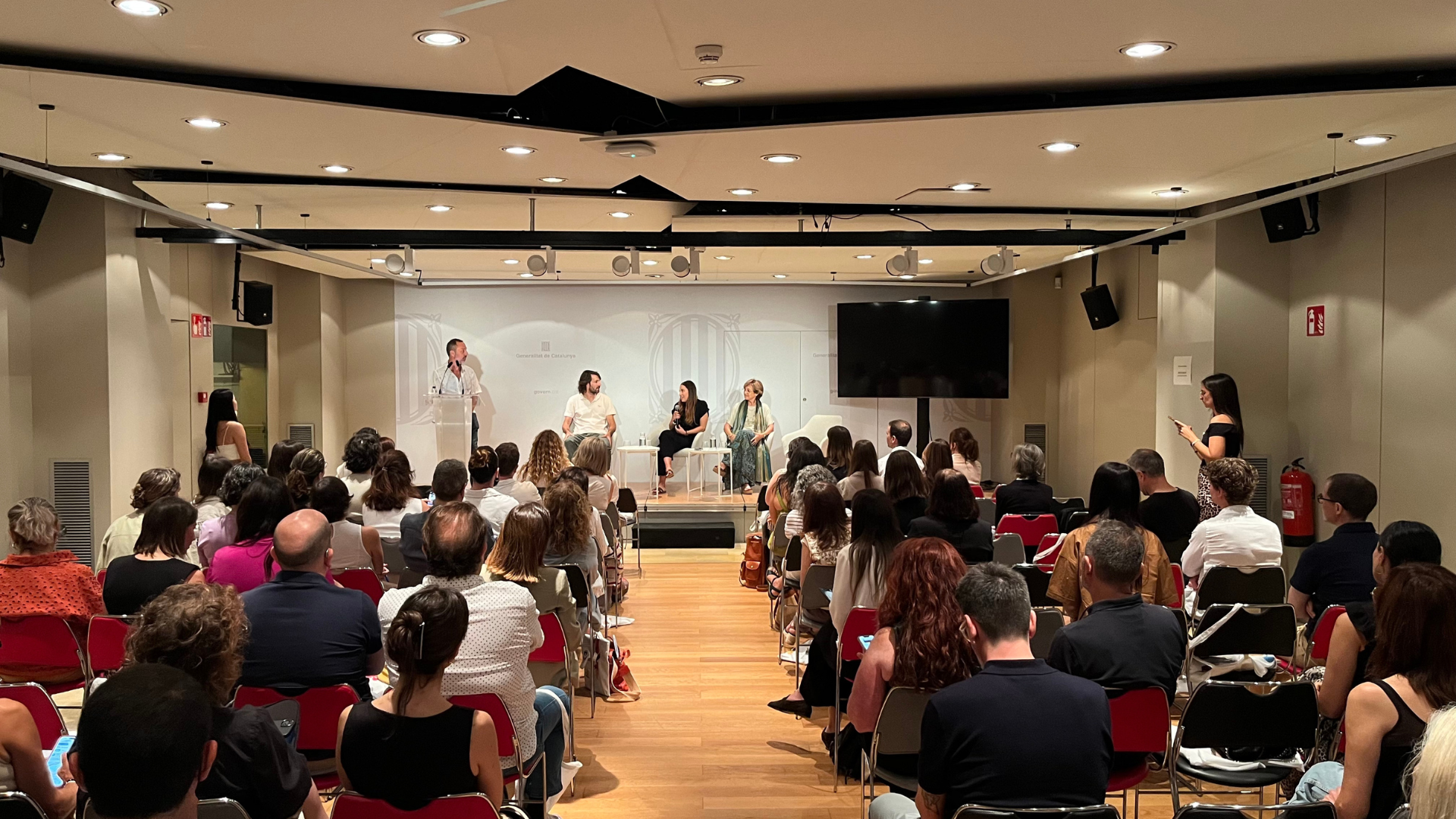Within the framework of Beauty Sustainability Week, the Beauty Cluster organised different activities during the week in which the cosmetics, perfumery and personal care sector focused on sustainability and how it influences the industry. The event was supported and sponsored by Provital and Biogründl, companies that integrate sustainability into all their processes.
The week opened with a webinar in collaboration with Kantar, which found that sustainability has become an imperative for brands, with 87% of the population wanting to lead a more sustainable lifestyle. Furthermore, 64% of consumers believe that it is the responsibility of companies to solve climate and environmental problems, while 74% believe that companies should contribute to a fairer society. In this context, the beauty industry is under pressure to adopt more sustainable practices, such as reducing over-packaging and the use of plastics, as well as addressing concerns related to carbon footprint or water footprint.
As the main event of the week, the Beauty Cluster once again held the Beauty Sustainability Day, which took place at the Palau Robert in Barcelona and brought together almost a hundred experts and industry professionals. Adrià Martínez, Project Manager of Beauty Cluster, was in charge of presenting the day distributed in two blocks of four round tables, each one with the 'main topics' concerning sustainability in the sector. At 9:30 am, the first round table began, which dealt with various topics related to the integration of sustainability in the value chain and how companies could incorporate sustainable practices at all stages of the value chain. In this case, the round table, moderated by Celia Campos, CEO and technical director of MuttaLab, counted with the perspective of Júlia Gassol, Senior Project Manager at INÈDIT, Ariadna Simón, Account Manager & Sustainability at Croda, Ainhoa Salcedo, QHSE Technician at Provital and Diana March, Global Director of Sustainability at Eurofragance. All of them explained how they integrate sustainability in their respective companies and presented the different initiatives and projects that promote sustainability in their organisations and how it is achieved from the raw material.
After the coffee break, the session was resumed to talk about a substantial element related to sustainability: packaging. This round table was moderated by Virospack's CEO, Aïda Rodríguez and was composed by Sandra Merce, Marketing Manager at Dilograf, Daniel Sánchez, Commercial Director at RAFESA, Rosa González, Non-food Packaging Group Leader at AIMPLAS and Oriol Arán, QP Head of Product Engineering & Industrial Project Management at Quadpack. At this round table, industry professionals explained the latest innovations in packaging, as well as the latest regulatory updates and what solutions are now on the market to promote sustainability and circularity. Of course, greenwashing was also questioned and how companies dress up certain packaging as eco-friendly.
After the coffee break, restarted the session to speak of a substantial element related with the sustainability: the packaging. This round table was moderated by the CEO of Virospack, Aïda Rodríguez and was composed by Sandra Merce, Responsible of Marketing of Dilograf, Daniel Sánchez, Commercial Director of RAFESA, Rosa González, Non-food Packaging Group Leader of AIMPLAS and Oriol Arán, QP Head of Product Engineering & Industrial Project Management of Quadpack. In this round table the professionals of the sector explained the last innovations in matter of packaging, as well as the last updates in matter of regulation and which solutions find now in the market to promote the sustainability and the circularidad. Of course, the greenwashing also was questioned and how the companies dress of ecological some containers.
To close the day, at 13:00 the last round table was held under the name 'Valorising Sustainability' which addressed the point of view of the value for consumers through the sustainability strategy of companies and how this value is perceived from different points of view of the value chain. The round table was moderated by Víctor Segura, Growth Business Manager of Batlle Group and counted with the participation of Ariadna Sanz, Senior Project Manager of Inèdit, Laura Vallvé, QSHE Technician of Provital, Stefan Esser, Global Change and Innovation of the Selvans Foundation and Elvira Casas, Supercritical Fluids Technologies of AINIA. During this round table, it was argued that the interest in sustainability is not just a trend and that companies have to work on this issue and promote sustainable consumption. The moderators agreed that there is a real interest in available products, but this conflicts when the time comes to make the actual purchase and the product has a higher cost. During this shared presentation, attendees were able to learn about some initiatives that are also being developed by the public sector in favour of circularity and the upcycling of products and by-products.
And as a conclusion to Beauty Sustainability Week, the Beauty Cluster, in collaboration with Inèdit, offered its members the opportunity to participate in a practical workshop with the aim of analysing the life cycle of products and services, learning about circular economy strategies and identifying opportunities to link business dynamics, objectives and challenges with circularity from a collaborative perspective.
